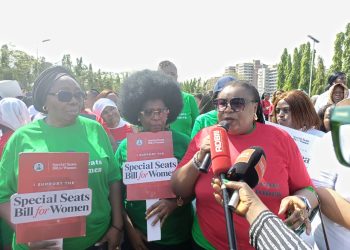The House of Representatives has commenced move to increase the constitutional 13 percent crude oil revenue derivation allocation to oil producing states.
The bill to that effect is seeking to alter section 162(2) of the 1999 Constitution of the Federal Republic of Nigeria (as amended) in order to address the observed concerns.
In his legislative brief on its general principles, Hon. Awaji-Inombek Abiante, who co-sponsored the bill alongside eight other members, said this bill was not all about resource control but an attempt to address the myriads of issues bordering on the meager ‘not less than 13%’ derivation fund payable to states on revenues derived from their environment as provided for in the 1999 Constitution.
He recalled that the evolution of the political history and revenue sharing formula dates back to pre-colonial and pre-independence activities, activism, consultations, engagements and concessions which guaranteed that the people as represented made vital and binding decisions for themselves and their various interests.
“The issues of revenue; concerns of compatibility; concerns of domination and accommodation of the various minority groups were topmost in the matters raised, discussed upon with seeming understanding, concessions and resolutions reached before independence”, he said.
Explaining more on the rationale for the proposal, the lawmaker said “it is important to state that this amendment is not only relevant for today but also for the future. Some of us may feel that this section that we seek to amend makes no meaning to them, because, their states are not presently affected but it is pertinent to ask, what about the future?
“Let us remember that every state in the Federal Republic of Nigeria is blessed with abundant natural resources capable of turning the economic fortunes of the country.
“The increased interest by federal government to reduce the dependence on oil and gas as the mainstay of our economy means attention will be shifted to the solid minerals”.
He said the huge environmental impacts of the exploitation of natural resources on the host communities were devastating, including but not limited to pollution.
“Even in the intent and desire to ensure the rehabilitation and development of the damaged environment where mineral resources (liquid, gaseous and solid) are derived for the sustenance and development of the whole country does not also seem achievable with the current practice of 13 percent”, he argued.















